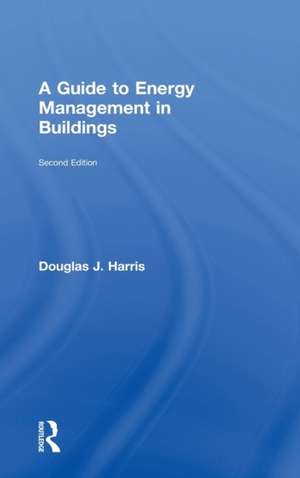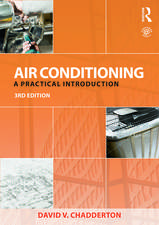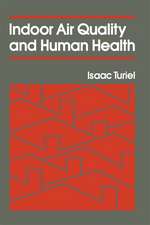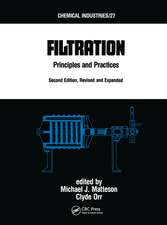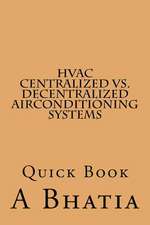A Guide to Energy Management in Buildings
Autor Douglas Harrisen Limba Engleză Hardback – 29 noi 2016
Topics covered include:
- where and how energy is used in buildings
- energy audits
- measuring and monitoring energy use
- techniques for reducing energy use in buildings
- legislative issues.
- the cooling of buildings
- fuel costs and smart metering
- and education and professional recognition.
| Toate formatele și edițiile | Preț | Express |
|---|---|---|
| Paperback (1) | 334.38 lei 6-8 săpt. | |
| CRC Press – 29 noi 2016 | 334.38 lei 6-8 săpt. | |
| Hardback (1) | 1269.38 lei 6-8 săpt. | |
| CRC Press – 29 noi 2016 | 1269.38 lei 6-8 săpt. |
Preț: 1269.38 lei
Preț vechi: 1548.03 lei
-18% Nou
Puncte Express: 1904
Preț estimativ în valută:
242.90€ • 254.45$ • 201.31£
242.90€ • 254.45$ • 201.31£
Carte tipărită la comandă
Livrare economică 08-22 aprilie
Preluare comenzi: 021 569.72.76
Specificații
ISBN-13: 9781138120686
ISBN-10: 1138120685
Pagini: 170
Ilustrații: 52
Dimensiuni: 156 x 234 x 11 mm
Greutate: 0.36 kg
Ediția:Nouă
Editura: CRC Press
Colecția Routledge
ISBN-10: 1138120685
Pagini: 170
Ilustrații: 52
Dimensiuni: 156 x 234 x 11 mm
Greutate: 0.36 kg
Ediția:Nouă
Editura: CRC Press
Colecția Routledge
Public țintă
Professional and UndergraduateCuprins
1. Background 2. Aspects of building energy use 3. Energy audits 4. Techniques for reducing energy consumption 5. Instrumentation and measurements 6. Organization and implementation 7. Support for Energy Management 8. Controls and Building Management Systems (BMS) Case study 1: An office building with medium-level glazing Case study 2: Conversion of a traditionally built dwelling to office use Appendix: Estimating energy consumption using degree days
Descriere
This new edition of A Guide to Energy Management in Buildings begins by asking why we need to control energy use in buildings and proceeds to discuss how the energy consumption of a building can be assessed or estimated through an energy audit. It then details a range of interventions to reduce energy use and outlines methods of assessing the cost effectiveness of such measures. This new edition includes coverage of cooling of buildings; fuel costs; smart meters and professional education. It should appeal to building managers and facilities managers and also to students of energy management modules in FE and HE courses.
